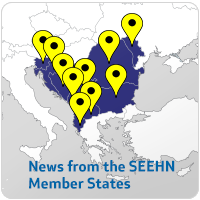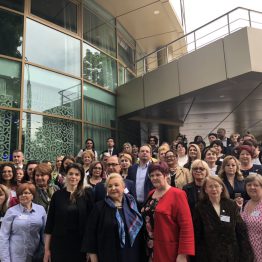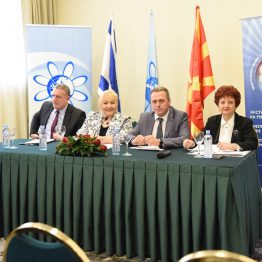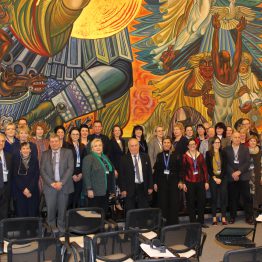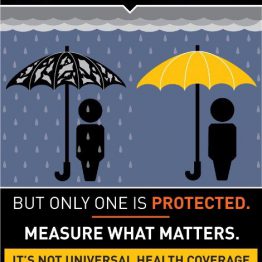
Recognizing the seriousness of the health workforce migration in recent years and the negative effects of brain drain and brain waste, the Republic of Moldova implemented the project “Better Managing the Mobility of Health Professionals” under the coordination of the World Health Organization.
Financially supported by the European Union, the project aimed to strengthen the capacity of the Republic of Moldova to manage the migration of Moldovan health professionals and to build up a better framework for the legal migration of health workers between Moldova and the EU in order to reduce or mitigate the negative impacts of migration on the Moldovan health system as well as to ease the reintegration of returning health workers.
Engaging a big team of WHO staff, experts, national authorities, medical institutions and medical education institutions both in the Republic of Moldova and from EU countries, the project incited and contributed to a 3-year-long fruitful collaboration that provided for substantial change in the HRH area in the country.
Achievements
One of the main project achievements is the development of a national information system (SIERUSS) to monitor the mobility of health professionals and the training of approximately 800 people in HRH governance and management and in using the SIERRUS database.
Furthermore, the project provided for the development of a relevant legislative framework and drafts of new regulations related to the employment and remuneration of health workers, improvement of both curricula for medical colleges and various postgraduate training programs, accreditation of the School of Public Health and Management as well as for the development of an e-learning platform at the University of Medicine and Pharmacy “Nicolae Testemitanu”.
An overview of all project activities, including the series of studies conducted in several European countries and the organization of dozens of policy dialogues, workshops and an information campaign, was given during the project closing conference held in March 2015. Also presented was a 20-minute movie summarizing the context, the challenges, the results and the lessons learned through views and opinions of Moldovan health professionals and WHO official representatives.
The Republic of Moldova as a SEEHN member
The example of the Republic of Moldova, one of the 10 member States of the SEE Health Network is to be commended. That was one of the reasons why the Republic of Moldova was authorized by the SEE Health Network to lead and coordinate the regional efforts on health workforce and its mobility through its designated Regional Health Development Centre in Chisinau.
Similar activities could and should be followed by the other SEE countries in either national and/or regional way. Health workforce is a major challenge for 9 of the 10 SEE Health network countries and is one of the four health objectives of the SEE 2020 Growth Strategy “Jobs and Prosperity in a European Perspective” which is currently in implementation with the support of the Regional Coordination Council, the European Commission DG Enlargement and many more international partners.





